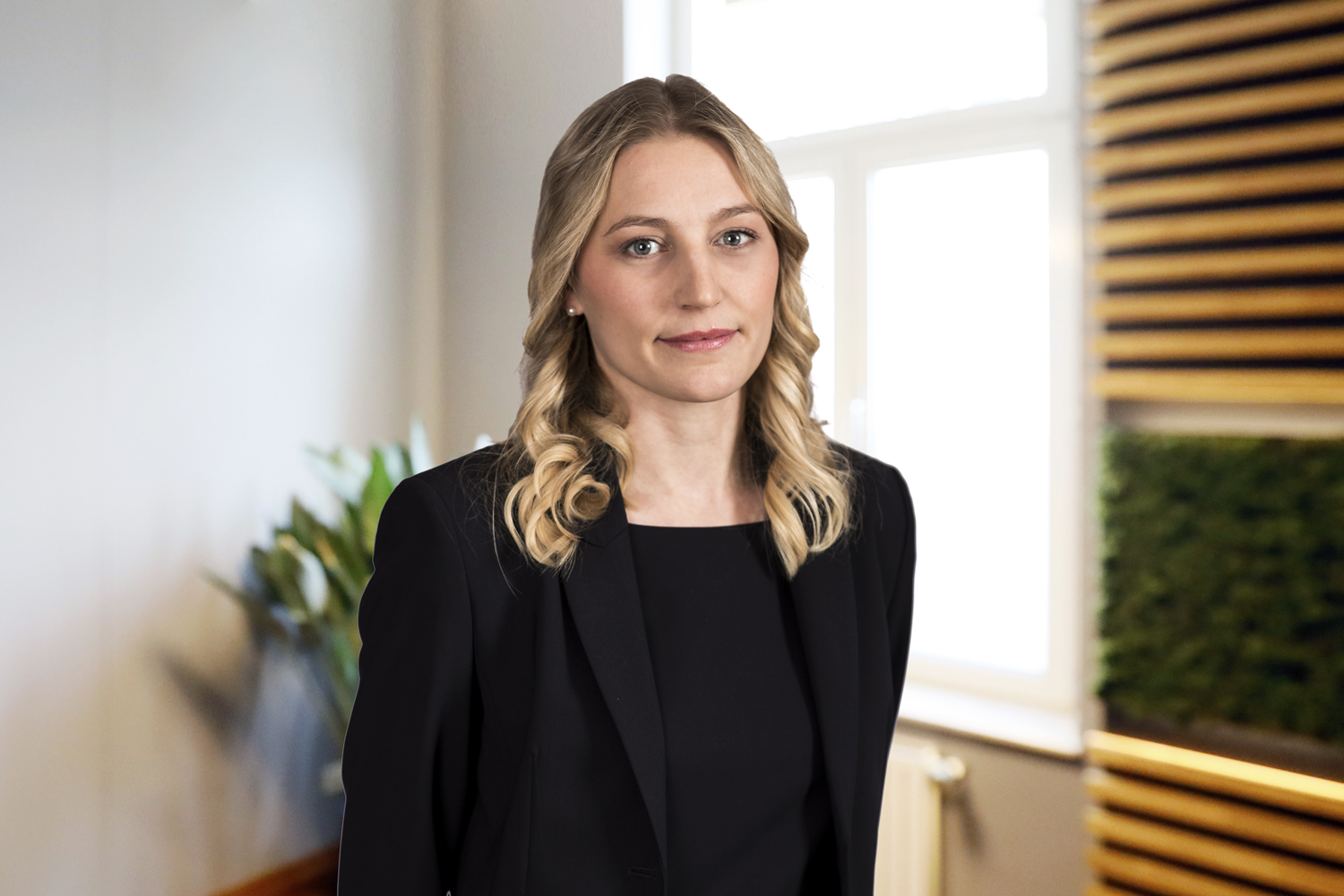The German apartment market is open to German and non-German citizens, as there are no legal restrictions to foreigners buying apartments in Germany. Whether you are looking for an apartment for private use or as an investment property, our German real estate lawyers are ready to support you.
If you are looking to purchase an apartment from abroad, our full-service approach means that our team is available to advise you regarding locations and what pitfalls may be present in the process.
For those purchasing an apartment outside of Germany, our lawyers can also act on your behalf with the power of attorney, as all property purchase contracts must be signed before a German notary.
The Process of Buying an Apartment in Germany
Buying an apartment in Germany is similar to purchasing a house. However, there are some key points to consider within the purchase contract, such as the property division between what belongs to the private owner and what is considered “common property” between those who reside in the complex.
There is also the matter of joining the WEG (Wohnungseigentümergemeinschaft – the Homeowners’ Association) when you buy an apartment in a complex.
The general process for buying an apartment involves the following steps.
- Check what you can afford and decide which mortgage to pursue: Find out what you can afford and how well you qualify for a mortgage. There are additional fees of up to 10-15 % of the purchase price, which must be covered as well.
- Finding a property: Finding a suitable property will depend on your personal situation. Working with a real estate agent or using real estate websites will locate the property for you.
- Contact the seller: Contact the seller and start the negotiation. Make sure to have our legal professionals in your corner to analyse what is presented and whether it is a fair offer.
- Reserve the property: As the German market can be pretty competitive, it is advisable to reserve the property once the parties have agreed. This reservation will give you time to finalise your mortgage arrangements. Securing a property will generally involve paying a fee, but this is essential in bigger cities such as Munich.
- Finalise the mortgage: Present the details to the bank and establish the most suitable offer. We can help you when it comes to the necessary analysis. Once a decision on which mortgage to pursue has been made, the application for that mortgage can begin.
- The purchase contract: The contract between you and the seller can be drafted. Our lawyers will analyse every aspect of the agreement to ensure you get a fair deal. Once the purchase contract has been agreed upon, it can be signed at the public notary’s office. Once it has been signed, the notary will register the priority notice in the land register, and you will be on your way to becoming the official owner.
- Paying the costs: Paying the seller the down payment and arranging the transfer of the loan amount with your mortgage provider allows the property to come into your possession.
Our lawyers are available to guide you through the process.
Construction Defects
When buying an apartment in a newly built facility, take note of any construction defects that may be evident. Even small cracks or leaks within the building can enormously impact how you experience your new apartment. It is recommended to have an experienced professional examine the apartment before committing to its purchase. Legal guidance is also recommended, as our expert lawyers can provide you with an outline of what response you should take to the matter. If you discover a construction defect in the apartment, it is vital to document it with photographic evidence and the discovery date and contact our team for further advice.
The Purchase Contract
As German contract law experts, the lawyers at Schlun & Elseven Rechtsanwälte can be relied upon to oversee the contents of the apartment’s purchase contract. The purchase contract is required to complete the transaction and will outline that the seller wants to complete the sale with the buyer undertaking the purchase. This contract will outline the names of the parties involved, the purchase price, how it will be paid, the property’s description and location, and the timeline for completing the purchase.
The agreement should include references regarding what happens when parties fail to carry out their side of the contract. The purchase contract will also include references to what is considered part of the individual property and what is the common property. This contract will outline your rights of use regarding the common property.
Buyers should be aware that the seller is not required to outline any obvious and significant defects to the buyer. They may be liable for hidden defects that were not obvious. However, the best way for the buyer to proceed is to consult professional legal advice and do the necessary due diligence before purchasing the apartment. Particularly with older apartments (“Altbau”), it is vital to examine the property with an expert advisor if necessary carefully. Thorough due diligence can prevent costly legal battles and repairs from being paid for in the future.
Upon agreement with the seller, the buyer can move into the property earlier than stated (if it is agreed to within the purchase contract). However, after the notary has arranged the change of ownership in the land registry, the buyer becomes the legal owner of the apartment.
The Declaration of Division (“die Teilungserklärung”)
When buying an apartment in Germany, it is vital to carefully read through the various agreements and contracts before signing them.
The purchase contract, in particular, plays a crucial role as it determines the legal basis for the purchase of the apartment, and it is vital for the buyer and seller’s legal security. Verbal agreements or statements agreed to by handshake are not legally binding and thus can allow the other party to change the conditions of the purchase or sale. If you are a non-native German speaker, it is advisable to consult with legal advice or, at minimum, receive a professional translation of the purchase agreement. There is no benefit to signing the purchase contract too quickly, as it will hold vital information.
Within the purchase agreement, there will be a declaration of division (“die Teilungserklärung“) outlining how the property is divided. This document will outline what elements of the building are considered to belong to “the common” and which is within your property. The “common property” belongs to all the residents; any structural change (major and minor) to the building must be discussed with the other residents in advance. Buying an apartment provides the purchaser with a co-ownership share within the overall property. This declaration of division will outline the rights and responsibilities of individual apartment owners.
Community regulation elements within the agreement will include whether an apartment can be used privately or commercially and how the cost of maintenance work on the common property will be divided. Other elements include more information regarding the size of different parts of the property and its division between the various owners. Within these elements, information regarding the common property use and cellars and garages will likely be included.
The Homeowners Association – the WEG (die Wohnungseigentümergemeinschaft)
Buying an apartment in Germany has some critical differences from purchasing a house; the primary divergence is that apartment owners become members of the WEG (die Wohnungseigentümergemeinschaft) or Homeowners Association.
Apartments tend to be individual properties within a larger building, and therefore both property of the private individual and common property exist. This shared property consists of areas such as the lobby and foyer area, the lifts, staircases, and additional facilities such as gyms, pools and parts of underground areas (depending on the property). Maintaining and repairing these areas is a communal responsibility, and the WEG makes collective decisions concerning their upkeep. Before committing to buying a particular apartment in Germany, it is recommended to investigate the WEG of that complex. WEG disputes are not unusual, especially in repair work, refurbishment, structural changes, and partition declarations. Therefore, knowing about the body and its decisions before buying the apartment will provide valuable insights.
Entering into a purchase agreement without knowing about the WEG can lead to challenges for a homeowner. Disputes can lead to steps such as negotiation, out-court settlements, and even court battles. When examining the WEG of the apartment complex, it is worth discussing topics and reading documents relating to matters such as:
- The Teilungserklärung (Declaration of Division) and Aufteilungsplan (Partition plan) are vital to understanding how the apartment complex is divided. It will outline what areas are considered joint property and private property. This document can only be changed by a decision from the WEG and not by new owners alone. A notarial deed can change it.
- The Gemeinschaftsordnung (Community of owners’ rules) outlines the relationship between the homeowners. This document has regulations regarding voting rights, the allocation key for Wohngeld, owners’ rights and responsibilities, and usage rights.
- The Jahresabrechnung (the annual financial report) documents all the annual income (contributions from the owners) and their expenditures. Expenditure refers to matters such as rubbish disposal, gardening fees, insurance fees, cleaning, etc. The administrator of the WEG prepares this document. It is agreed upon during the Eigentümerversammlung – the annual meeting of the homeowners.
Where possible, it is recommended to have a positive relationship with the other members of the WEG, as they are your neighbours. However, if you believe that your rights are not being respected or that the WEG is overreaching with its powers, it is worth consulting with professional legal advice.

Practice Group: German Real Estate Law
Practice Group:
German Real Estate Law
Contact our Lawyers for German Real Estate Law
Please use our online form to outline your request to us. After receiving your request, we will make a brief initial assessment based on the facts described and provide you with a cost offer. You can then decide whether you would like to engage our services.








